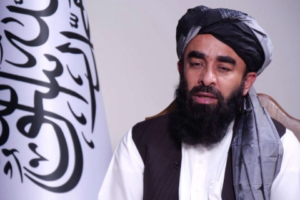Annisa Essack | kzn@radioislam.org.za
22 May 2023 | 17:00 CAT
2 min read

Photo Credit: Kabul Times
The supreme leader of the Afghan Taliban, Mullah Haibitullah Akhund, confirmed Wednesday they had appointed a caretaker prime minister to oversee daily affairs. Mawlawi Abdul Kabir has replaced Mullah Mohammad Hasan Akhund, who had been in charge of the interim government since the group seized control of the country in August 2021. Kabir was crucial in the 2020 Doha Agreement with the United States. The 60-year-old leader has been under United Nations sanctions since 2001, when he served as the acting prime minister of the then Taliban regime. He took shelter in Pakistan after the Taliban government was toppled in a US-led invasion in 2001.
Hashmatullah Moslih, Journalist, independent analyst and former senior producer at Al Jazeera, explained that the previous Prime Minister suffered from ill health and could no longer carry out his responsibilities. He added that it would be for a short period but could change.
Moslih says that in the two years that the Taliban has taken over Afghanistan, they have successfully kept the country together. Importantly, what may be the success of the Taliban is its unity. When they came to power, there were many fears that there would be opposing views on tribal and ideological lines, but they managed to sustain their unity.
The Taliban, however, have been unable to eradicate the ISIL movement, which still threatens their leaders. Another small group they have incorporated or defeated is the former Mujahideen remnants of the early 80s and 90s who are still in the mountains in the North.
Economically, even with the sanctions from the US and its allies, the Taliban has managed to keep an even keel and has begun large projects and resumed those that have stagnated over decades. Moslih says that the war in Ukraine has helped the Taliban as there has less meddling from foreign powers.
Speaking on those against the Taliban, he says countries like France, Australia, and Europe influence small groups who prefer a secular government and reject Islamic policies. The Tajiks, Uzbeks, and others have no issue with the Islamic policies of the Taliban but disagree with the disproportionate number of leaders in the Taliban-run country.
Listen to the full interview with Sulaimaan Ravat on Sabahul Muslim here







0 Comments